
Contributed by Elizabeth Scheer / Though I am no longer in the art world, my career is more lucrative and fulfilling than I could have ever imagined. I am well-known and beloved among my clientele, and I make a great deal of money. The title of my profession cannot be named, as it would not be in the best interest of either my clients or me. Everyone who knows me, however, knows I owe the triumphs of the last decade to the events I am about to relate, which catalyzed my discovery of my true talents. With that in mind, the moral of this story might be to remain open to all of life’s possibilities.
That day at the gallery began much like the one prior, and the one before that. The color of the font on the press release needed to be adjusted from black to gray. Photographs of a plexiglass suitcase with a tuft of hair on its handle had to be sent to the consigner.
Most notably that afternoon, there was a situation regarding a large tube containing a print by a well- known artist that needed to be mailed to Saarbrucken, Germany. It was unclear whether the tube might be retrieved at the gallery, or whether it needed to be brought to 1st Avenue. Sometimes the words on the FedEx website seemed to state that the tube could be picked up. At other moments, however, the same phrases indicated the opposite message. I related my findings to the director of the gallery.
“The tube can be picked up, and we have to deliver it.” I said.
“Are you fucking serious,” said the director. “Do you have a learning disability?”
Sadly I had no such excuse. The job was new and I wasn’t very good at it. I had no experience in the art world and had somehow landed the position by wandering into the gallery – a lonely place – and making conversation with the temperamental director. At first, it seemed as though my doctorate might have been part of my appeal. Quite quickly, however, both the director and I realized that that credential would be of little use.
“Did you lie when you said you had a PhD?” said the director. “I can’t work with liars.”
Despite these unpleasantries, I enjoyed my work at the gallery. Firstly, it gave me a place to go after an unfortunate situation with my prior employer. Secondly, I enjoyed listening to the director yell at people other than me on her cell phone. Such overheard eruptions made me feel like a participant in a vast tapestry of human struggle. Other things I enjoyed included learning how to wrap art with saran wrap and cardboard corners, how to level a painting and how to make a checklist. I learned that the words “buy” and “sell” are ugly, vulgar words that must never be uttered. The director gave me— not advice per se–but rather some insight into the laws of both seduction and aesthetics. One must refrain from wearing hair clips or other “childish paraphernalia,” and one must always strive towards that ineffable mixture of cordiality and disdain.
“You’re like a big baby,” said my director. “You know nothing and have good skin.” “Thank you,” I replied.
The only other employee at the gallery was the art handler, Rick, a gentle soul with slicked back hair and a watch collection. “Hang tough,” he’d say at the end of each day, and give me a fist bump. The face of his giant watch glittered as if it were crying.
“Rick lost weight when he started this job,” said the director. “You’ll get there.”
The gallery represented five artists. One artist painted Mickey Mouse over and over, fondling himself with big, smeared hands. One artist titled his works “Egg I, II, III” and so forth.There were others but I do not feel like describing them in great detail at the moment. I have spent enough hours of my life contemplating each of these individuals’ peculiar visions while on the clock.
One day, on my way back to the gallery after a humble lunch of peanut butter and jelly, I noticed a small store whose interior looked as dark as a tomb. I suppose I had passed the store on other occasions, but today I was compelled by its darkness. There was nothing to see, and that in itself was a balm for my tired eyes. Upon entering, I realized that the store front was more of an antechamber, and that beyond this dark entryway was a small corridor. The first thing I noticed was the smell. It smelled like a bonfire on the snow. A dark pool lit by the moon. Two animals running at equal swiftness. Distant music. It smelled like a new color nestled in the earth. The smell was the whole past and, somehow, the curve of the new, a gliding form that one could almost touch, touch every way. But there was nothing to touch, nothing to see, and this made the smell all the more beguiling.
I proceeded through the corridor and into a room with a long table at its center. Perfume bottles lined the table’s perimeter, each standing on a small, illuminated plinth. The table looked like an alter or a torture device, though which of the two I could not say. A man emerged from the back of the gallery whose beauty I struggle to describe. He was blonde, I could say that. His eyes were ambivalent and blue and seemed fixated on some point six inches to the left of my own gaze, like he was distracted by a doppelganger or a ghost. His face held no cues as to the thoughts inside his skull; his countenance was marked by a flat grit, stripped of affect, brooding and vampiric.
I congratulated him on the beauty of the room: to call it a store seemed crude, like squirting ketchup on caviar. He nodded. I observed how the smell in the space, unlike a painting, seemed to change moment to moment. It was like a word you couldn’t remember or a door that wouldn’t open. A voice spanning a meadow for something it could not find.
The man agreed, and contended that perfume is the most abstract of all the arts. He told me he had gone to film school, but grew interested in perfume while working on an experimental film about a psychotic priest. The priest was a murderer who derived pleasure from sniffing the vestments of his victims.
“I want to make movies that are actually terrifying,” said the man flatly. He moved around the table of perfumes with great alertness and care, like it was the circuit board for a bomb.
We got on the subject of smell and emotion. I asked if the man could show me a funny smell, and he retrieved one that smelled like buttered popcorn. When I inquired about the possibility of a scary smell, he grew very grave. He had once purchased a frightening odor in Paris, he said, but he did not wear it. He kept it in his apartment as a specimen.
“Of all the senses, smell is the most intimately linked to horror,” said the man. Another customer entered the room, a woman with a big, black hat. It was time for me to depart.
Back at my desk, I composed some emails about the cost of an international crate and the dimensions of a work that would be consigned to a museum in Carmel. I swept the floor of the gallery, though there was nearly no debris. With great effort I was able to accumulate a staple and a small styrofoam ball in the dustpan. There was also, strangely, a pubic hair, but I decided to leave it in its place. I had my means of protest. Sometimes, when the director was out of the office, I licked the paintings. They tasted like nothing.
Though I was doing my usual duties, I now had perfume on the brain. Unlike painting, sculpture or dance, perfume was invisible to the naked eye. Unlike a piece of music, perfume did not begin or end. Unlike food, perfume was not ground up and shat out, but rather absorbed into the skin’s surface. The disappearance of the scent was synonymous with its internalization, like a memory. The smell was there and it was not. My mind conjured a series of disparate images: a clown in large burlap trousers, a bird folding and unfolding its wings, spinning plates. I felt a bit insane. I googled whether it was possible to die from too much of a certain smell, but the database only yielded information regarding standard toxic fumes. That is not what I meant at all.
After work, I walked back up the avenue and lingered momentarily in front of the store. A small sign had been placed on the door in neat cursive, explaining that it was closed for “the dinner hour.” When I turned around, however, the perfume man was approaching. He wore a large black down coat with a white stripe on the arms, like a skunk. It was a good coat for someone in the perfume business. We greeted each other and he told me to return to the store sometime to further discuss some of the topics we had broached.
The following day, I dusted the paintings at the gallery. We also had some visitors. I stood at a respectful distance while two French men contemplated a statue of a gold baby with tiny devil horns. They were tall and leathery, clad in floral button-downs, carrying small decorative purses, and the other usual accouterments of such individuals. The director soon emerged and ushered them into her office. Inside, I heard them laugh, but not a real laugh, it was a laugh that had been thrown over another emotion like a dark cloak. One of the men soon emerged and said he had a “bathroom emergency.” It involved some patch underneath his clothes that needed to be emptied. When I handed him the key to the men’s room, his hand was clammy and cold.
On my lunch break, I returned to visit my new friend. He was on the phone and swiftly concluded his call to greet me. He was wearing the same outfit as the day before, a dark shirt and pants. His eyes were so blue. They were the color of the gel ball inside the leveler at the gallery. I imagined placing them on top of a painting, and watching them roll like marbles until they sat evenly on its top. Ah, perfect.
I asked him whether he had a perfume that smelled like a leap year, and he retrieved that scent. “This scent smells like acceptance,” said he, retrieving another bottle, and it did. Another perfume smelled like pure mathematics, and another, still, the underside of a falcon’s wing. I cautiously related the details of my research the night prior; my effort to discover a lethal scent. Is there a smell that smells like nothing, like beyond life itself, I wanted to know.
That smell is beyond us, said the man. No one knows what it’s like when we die.
I conceded this was true. Outside, there were many scents passing: cars, dogs, pigeons. Pedestrians walking downtown and uptown, typing messages with cold fingers, communicating with all the voices in their phones. Shrieking children, the loop of a pop song, appearing and disappearing like soap suds. The man cleared his throat, and then said the following.
The perfume to which you might refer is the scent of condemnation. It is the smell of the air around a person as one lives out one’s days knowing that a terrible sentence has been issued and it is coming, it is coming, and there is nowhere to flee from it. This perfume is the aroma of entrapment: metal and old food, the inside of a rubber mask. It conjures the punishment that you have been slated to endure at any moment, and you are waiting to find out when you will meet your fate, and by what instrument, and whose hand.
He continued.
The smell changes over time. It seems to abate, but it returns and crests, deafening, crashing over the mind like a gray, angry wave. People are known to kill themselves trying to escape this fateful aroma.
I asked if I might see the perfume and he agreed. We went into the back office, where my companion stored his belongings. There were some papers, and several lengths of copper wire, and a smooth, brown rock. There was also a small photograph of a very ugly man taped to the desktop. I was struck, moved, even, by his ugliness. The man’s face was flabby and misshapen, with drooping eyes and a yellow underbite. He looked almost prehistoric. I noted the image and my companion didn’t say, “I am not related to that person.” He simply put on a white glove and retrieved a small, clear vial from the highest shelf. We examined the bottle together. “How much does it cost?” I wanted to know.
“It’s not for sale,” said the man. “It’s for my private activities.”
I said I understood, but that I needed the perfume and would bring it back. I had no intention of returning it, and the man must have known this, but he nonetheless placed the perfume in a small, velvet pouch. You must understand that at this point there was a close and indestructible understanding between the perfume man and me: an understanding rooted in some fundamental character similarity that existed outside the mundane proceedings of the world.
That afternoon, I brought the pouch into the director’s office. “A gift has arrived for you.”
Her beady eyes narrowed, scanning and seeking, seeking and scanning. I worried for a moment that she would reject my offering, but I managed to continue to elaborate on the circumstances of the gift; it had been dropped off by our shipper alongside a painting that we had been expecting that day.
She berated me for accepting a package that we had not been expecting. The rigamarole of gifted cards, flowers, chocolates, tickets, cookies, accessories and so forth. Pandering of this kind was a great embarrassment for all involved parties. ‘These artists can try, try, try,’ she liked to say. ‘But it will be a cold day in hell when I show their lousy work.’
There’s always an ulterior motive behind a gift, she explained today. She sometimes liked to fancy herself a mentor to me, imparting the realities of contemporary life to a bumpkin. Little did she know. What is it, give it to me, she said.
“It’s perfume,” I said, handing her the vial. “It’s made by an emerging artist who works with smell.” The director opened the pouch. “Sending me perfume? These artists are getting so desperate.”
I agreed with her, noting that, at the very least, the scent was extremely beautiful. She smirked, and brought the bottle to her nose.
About the author: Elizabeth Scheer is a painter and writer living in New York.


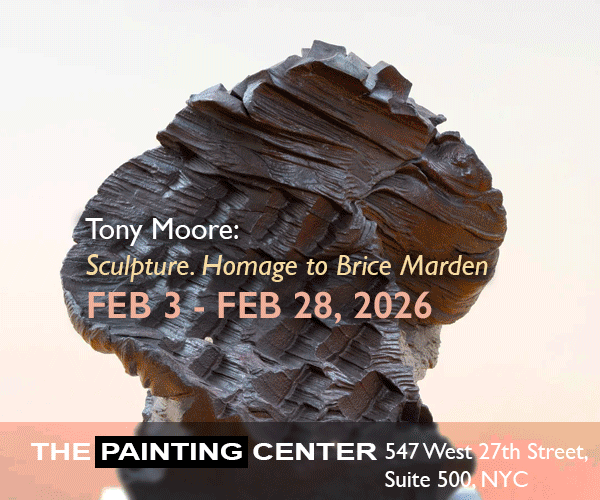



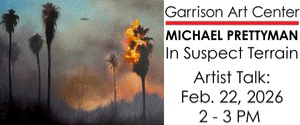
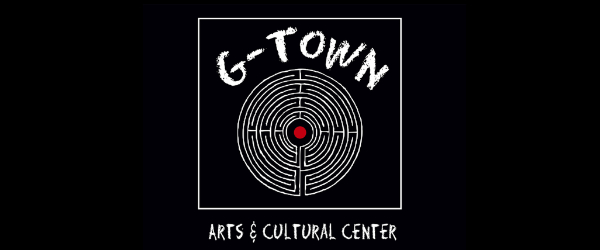











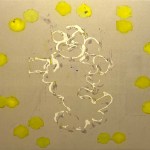
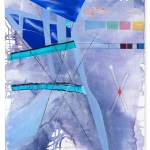


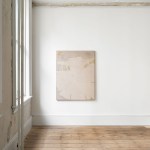

and THEN what happened?
Ms Sheer tells a very good story with
a Shirley Jackson style of daily casual cruelty mixed with a Ray Bradbury ending. I look forward to reading more.
SO incredible to read! I love this and the description of scent, mystery.